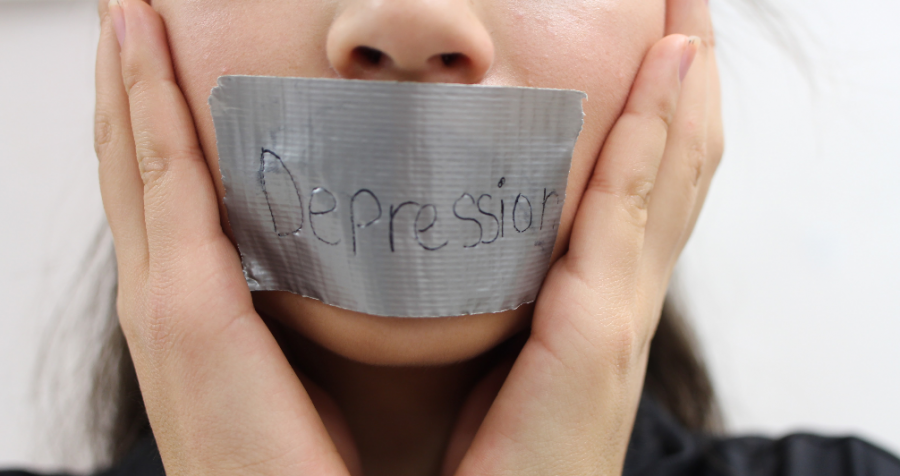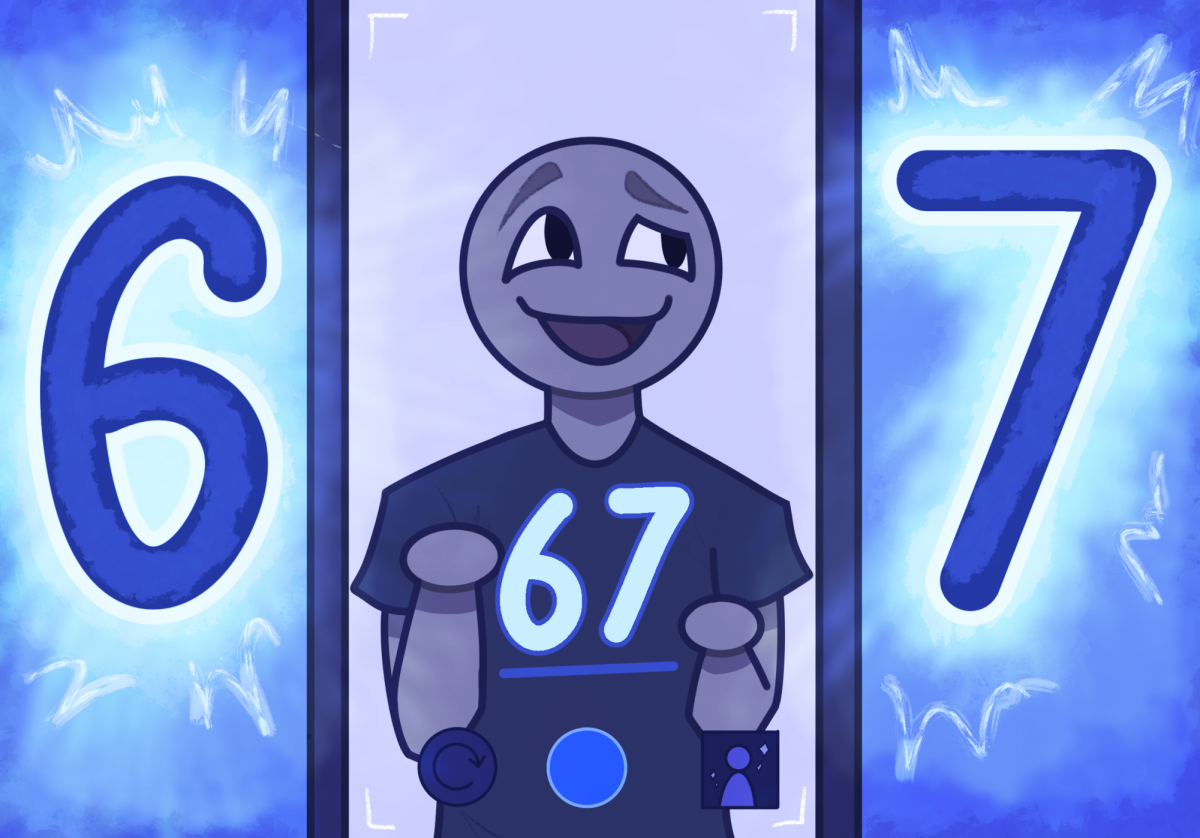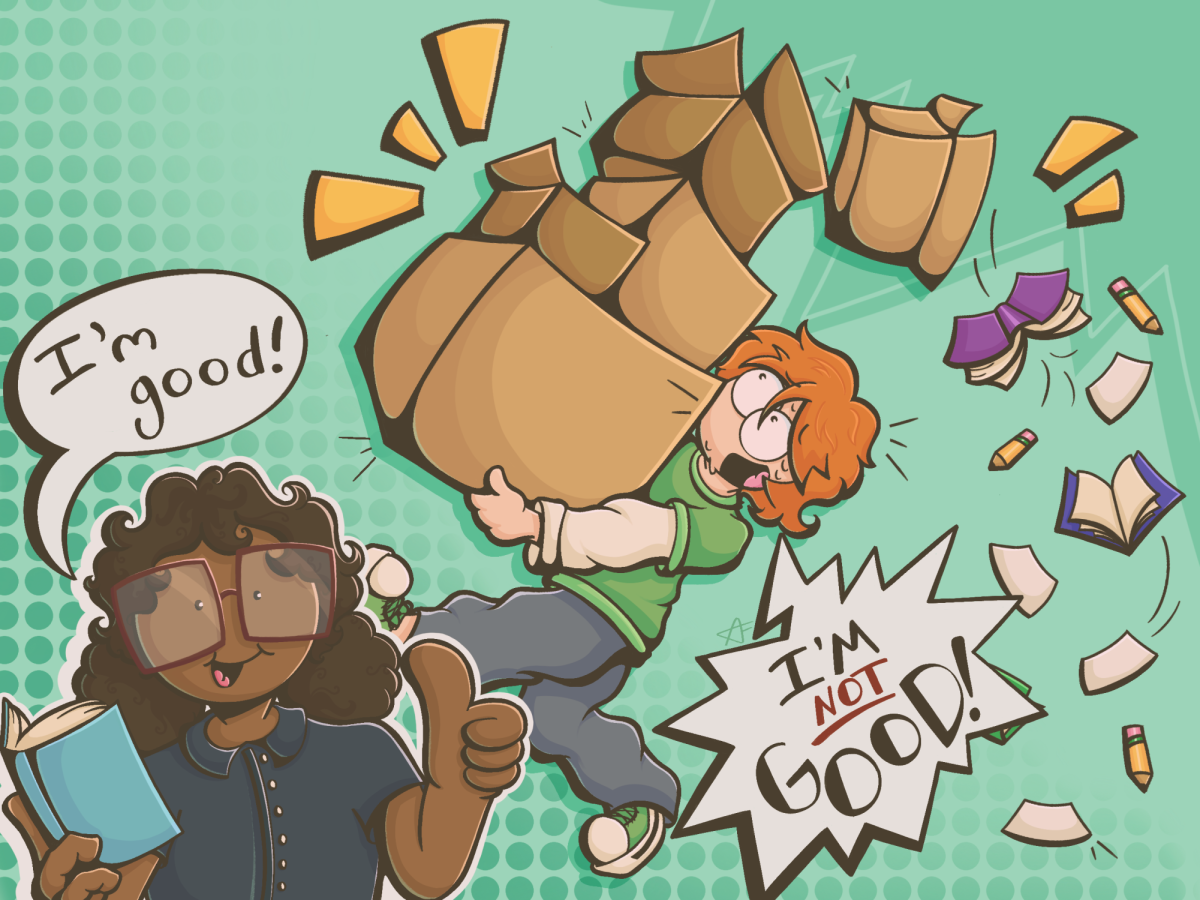If you were diagnosed with lung disease, would you ignore it and blame it on yourself? Although mental illnesses are just as real as tumors and cancer, what causes those suffering to stay in silence? Why let today’s friends become tomorrow’s headlines?
**NOTE: Parts of this article include themes of verbal abuse, suicide, self-harm, bullying and medication. If you are triggered by these themes, reader discretion is advised.
Stigma is defined by Merriam-Webster as “a set of negative and often unfair beliefs that a society or group of people have about something.” In reality, those afflicted with mental illness can be adversely affected by the stereotypes and negative connotations present in society, often causing them to not share what they are suffering through with anyone.
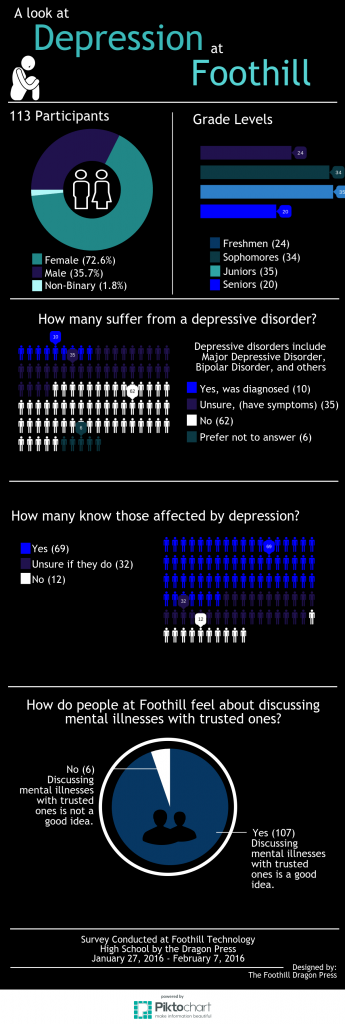
Although the discrimination may not be present in every person’s life, portrayals of mental illness can lead to self-stigma, creating the false thought that they may be responsible for the illness.
Yet, despite the fact that one out of four people will experience a mental health problem every year, nine out of 10 of those will experience stigma and discrimination. Although those people walk among us in our daily lives, three out of four people are afraid of their peer’s judgement should they talk about their mental health.
Mental illnesses can happen to anyone, from the happiest of people to those who have dealt with unfortunate circumstances. Not much is known; however, genetics and conditions growing up all affect someone’s chance of being afflicted. Among the most common, and especially prevalent in today’s adolescents, is depression.
[divider]What is depression?[/divider]
Depressive disorder, defined by the American Psychiatric Association, is “a common and serious medical illness that negatively affects how you feel, the way you think and how you act.” Depression will create persistent feelings of sadness, loneliness, and can vary in severity from person to person.
Just like other diseases, mental illnesses also have varying types. Major depression is an especially bad episode that interferes with an individual’s lifestyle, though typically doesn’t repeatedly occur. Persistent depressive disorder is a prolonged feeling of depression that lasts much longer, and may have repeated episodes of Major depression. Bipolar disorder incorporates Major depression in that Bipolar disorder creates mood cycles, from mania to depression.
Very little is known about mental illnesses, aside from its contributing factors. Although an individual may be more fortunate than another, they still are at risk of suffering from a depressive disorder.
Christa* has had a relatively normal life, and also suffers from depression. At times, she has to remind her friends and parents that it wasn’t their fault for her illness.
“I was talking with my parents one time and they were like, ‘I feel like I did something wrong to have you be depressed. I don’t want you being sad all the time,’” Christa recalled. “It’s really hard because they feel like they did something wrong, and maybe they have if you’ve had a bad relationship with your parents, but a lot of the times with me, I had to keep reassuring them like, ‘No, it wasn’t your fault. There were some things that didn’t help, but it’s not completely your fault.’”
At times, the enviroment that someone grows up in could also bring out factors that don’t help them. Katie* grew up with verbally abusive parents, lost friends to suicide in her 8th grade year, and was once told by her mother that she should not have been born.
“It was eighth grade year when I finally realized that I had really hit rock bottom, because I lost friends to suicide, and it was really hard because as a kid you don’t know that could actually happen to people,” Katie said. “But growing up in middle school is a big blur because you’re just in middle school. It kind of explains itself.”
Shaun* found himself bullied from childhood, in addition to a rough home life. The bullying only continued to grow worse as he grew older. He was diagnosed with chronic depression and insomnia.
“My parents never had a healthy relationship, I’ve always heard them fight, almost every other day when I was in middle school, and when I was in elementary school,” Shaun said. “I had no voice. As it continued as I became older, I tried speaking out for myself, and I realized I had no voice no matter what I do.”
Depression manifests itself in daily life, whether it’s one person’s mood or how much they speak. For Ellen*, she often secluded herself, mostly staying in her room and not having a desire to hang out with friends. Christa remarked that it can put you in a low mood, in addition to affecting your entire day.
“[My parents] just wanted to fix me, and it wasn’t something you could fix, it wasn’t like a cut you could put a band-aid over and it would heal in three days,” Christa* remarked. “My parents really just wanted to fix it, but my friends and some of my peers were more like, ‘No, here, I’ll help you.’ So helping and fixing are two totally different things.”
“It put me in a really low mood for a few years in my life, […] there’s some highs and lows,” Christa said. “It can affect [your life] in different ways, sometimes it’s like how you talk to people, how you appear, how you act in class whether sometimes depression keeps you up at night, till two in the morning and you’re like, ‘Wow, I’m tired’, so then it affects the next day at school.”
Stephanie* also has to deal with the amount of stress that can be brought upon by depression, as at times, an asthma attack can occur.
There are a plethora of people with similar stories, however, many of them don’t open up to others. Although many people suggest opening up to those you trust that are close to you, doing so can be extremely difficult.
[divider]The difficulty of opening up[/divider]
Many of those affected with mental illnesses feel discriminated against, even by the fact that it’s called a mental illness.
“I think mental illness is a tough word to use and makes the person feel different,” John* said in an email to the Dragon Press. “I mean it is a mental illness but telling someone they’re mentally ill may make them feel bad about it.”
“I think there’s an association that when you hear ‘mental disorder.’ You think ‘crazy person,’and then you think ‘mental hospital,’ and it just leads down a bad path,” Ellen said. “I could see that happening, but there’s a lot of people who walk around with it every day and you don’t notice it, so it’s kind of an association that’s bad.”
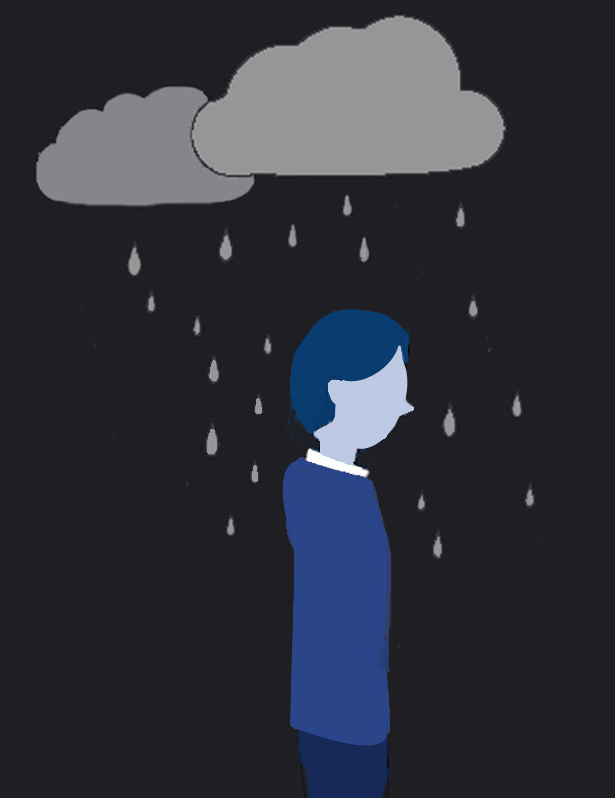
Shaun not only has to deal with the stigma of having depression, but also of being homosexual, multiracial and being from a low-income family.
“It doesn’t help. Throughout history, people have been discriminated against just for any of these where they’re a minority,” Shaun said. “I feel like I’m one of the people who feel it the most nowadays, where I realize how bad it’s gotten.”
Not only is there the common connotation that having a mental illness makes you crazy, but also of discussing depression itself.
“It’s not how you approach it, it’s just the topic itself is hard. There’s no easy way to discuss depression or anything like that because it is so, so saddening,” Shaun said. “You can barely go a second without feeling drained of everything. […] It’s never easy to teach it in any way.”
In a recent survey conducted by the Foothill Dragon Press, several people who identified as having been diagnosed with a depressive disorder chose not to open up to others.
“In this day in age, depression seems to be such a taboo topic, even though so many people have it. I would not like to tell someone I think they are depressed unless they bring it up because I feel that it would imply that I think something is wrong (a bad kind of wrong) with them when that is not the case. That’s just the connotation depression seems to carry in society,” an anonymous senior wrote in the survey.
Several others wrote that they never opened up because it felt personal and like self weakness. One anonymous senior wrote, “In my family mental disorders are non existent. I’m terrified of being put down as someone who wants attention.”
Among the misconceptions about mental illnesses is that people use it to seek attention. However, that is not necessarily the case.
“I know there’s so many people that don’t want to be with other people if they have depression, or they just want to get attention, I don’t believe that,” Stephanie said. “If they’re depressed and sad, you have to help that person back up. There’s no judging people from looks, and I’ve experienced that myself.”
Katie believes that the amount of stigma depends on the type of people and location, as well as the primary interest of certain groups.
“It’s not how you approach it, it’s just the topic itself is hard. There’s no easy way to discuss depression or anything like that because it is so, so saddening,” Shaun* said. “You can barely go a second without feeling drained of everything. […] It’s never easy to teach it in any way.”
“It just depends on where you are […] and the people, the overall look of things I guess,” Katie said. “In Foothill, I think things are more academically spoken than emotionally. […] I think you can be yourself at Foothill but you’re still going to be judged no matter what.”
Additionally, males were found to impose more self-stigma, as they typically don’t wish to show their feelings according to a study published in the Community Mental Health Journal, when presented with a survey about depression, many chose to ignore it, leading to only 25.7 percent survey takers being male. Not only that, but men are 3.5 times more likely to succeed with suicide than women.
“In today’s society and throughout the history of the United States, there’s always been this kind of ideal that men are supposed to be masculine, and women are supposed to be emotional and feminine, but that’s not always the case,” Shaun said. “I feel that’s kind of discriminatory, because that makes people like me, guys, men, feel that they can’t discuss their emotional life, that they’re trapped no matter what they do.”
“It’s never easy to let someone know how you feel. If you think about it, when you talk to someone, when you’re into someone and you want to tell them how you truly feel about them, are you going to immediately rush to them and tell them, show them that you actually love them in any way possible?” Shaun asked. “No. What you’re going to do is sit back and try to figure out how you’re going to do it, or you don’t even do it at all.”
[divider]Break free from the stigma[/divider]
Opening up communication is often imperative to have as an outlet, as well as finding support. However, several people emphasize to not force someone to open up or to tell them to go see a therapist unless they are in danger of hurting themselves.
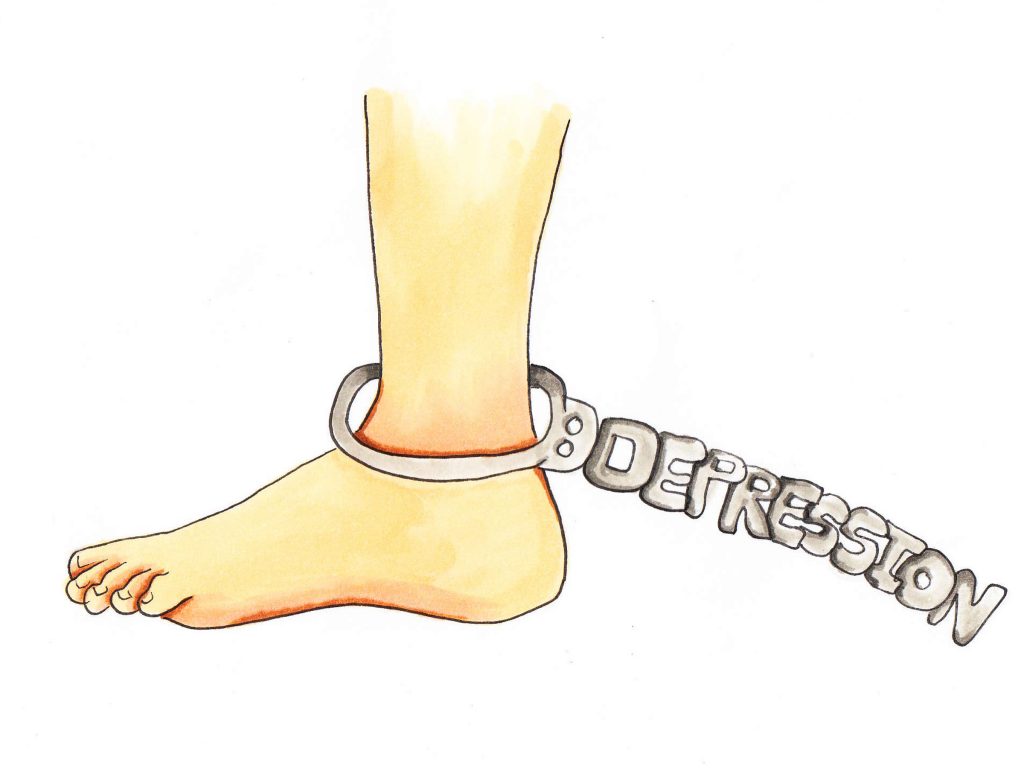
“What I feel about depression and anything you are diagnosed with is that it’s up to that person, you can’t decide what they do, you can’t decide whether or not they need help, it’s up to them to decide for themselves,” Shaun said. “Unless of course, they’re at the point I’ve gotten to a couple times where they felt like committing suicide, in any way. That is the only time someone should ever step in.”
Mental health and illnesses are very complex, and can’t simply be fixed with a surgical procedure. Although Christa has chosen to open up to her friends, she notes the difference between someone who desires to fix someone, and someone who desires to help someone.
“[My parents] just wanted to fix me, and it wasn’t something you could fix, it wasn’t like a cut you could put a band-aid over and it would heal in three days,” Christa remarked. “My parents really just wanted to fix it, but my friends and some of my peers were more like, ‘No, here, I’ll help you.’ So helping and fixing are two totally different things.”
Finding people to trust all depends on the level of trust between people. Those interviewed suggested letting others know that you care about them by doing the little things, such as a simple ‘Hello,’ or even lending a sympathetic ear.
“I think it’s about how the connection is with the person, some people you trust on different levels, some of my friends we have a depression connection,” Christa said. “I trust them on a different level than someone like my parents.”
“I told my best friend, and she was there always,” sophomore Anne Castaneda said. “Usually if I trust to tell them anything, I can tell them that.”
Several people find outlets for their emotion, such as how Katie paints to express herself in place of other behaviors.
“I just lose control with art, that’s my outlet, that’s my little plug,” Katie said. “I used to dye my hair and pierce my face, that was my outlet, and for awhile, I was self-harming.”
“In today’s society and throughout the history of the United States, there’s always been this kind of ideal that men are supposed to be masculine, and women are supposed to be emotional and feminine, but that’s not always the case,” Shaun* said. “I feel that’s kind of discriminatory, because that makes people like me, guys, men, feel that they can’t discuss their emotional life, that they’re trapped no matter what they do.”
Castaneda uses drama as her outlet.
“It’s kind of like an escape because you’re almost like another person, and you can take on these other characteristics,” Castaneda said. “And it just really helps, I can’t explain exactly why,”
Shaun turned to music and singing, where he found his voice.
“I turned music into my own therapy, that was my way to calm down,” Shaun said. “I found it as my outlet where I can do things. It wasn’t until my eighth grade year that I figured out this is where I had my voice, this is where I can speak out and tell people how I feel.”
Health teacher Anthony Unchangco taught empathy during the mental health unit, mostly showing that those afflicted look like anyone around us.
“Someone who’s going through all of those thoughts look like me, and it’s not […] what the media tell us it looks like,” Unchangco said. “That’s how I intro [the subject], so that students know someone going through that, can be anyone.”
[divider]“Not big plans, but baby steps”[/divider]
According to the National Institute of Mental Health, “Depression, even the most extreme cases, can be treated,” using a combination of medication and psychotherapy. However, several people interviewed stated that it’s more important to be comfortable about who they talk to, rather than being forced to consult a doctor.
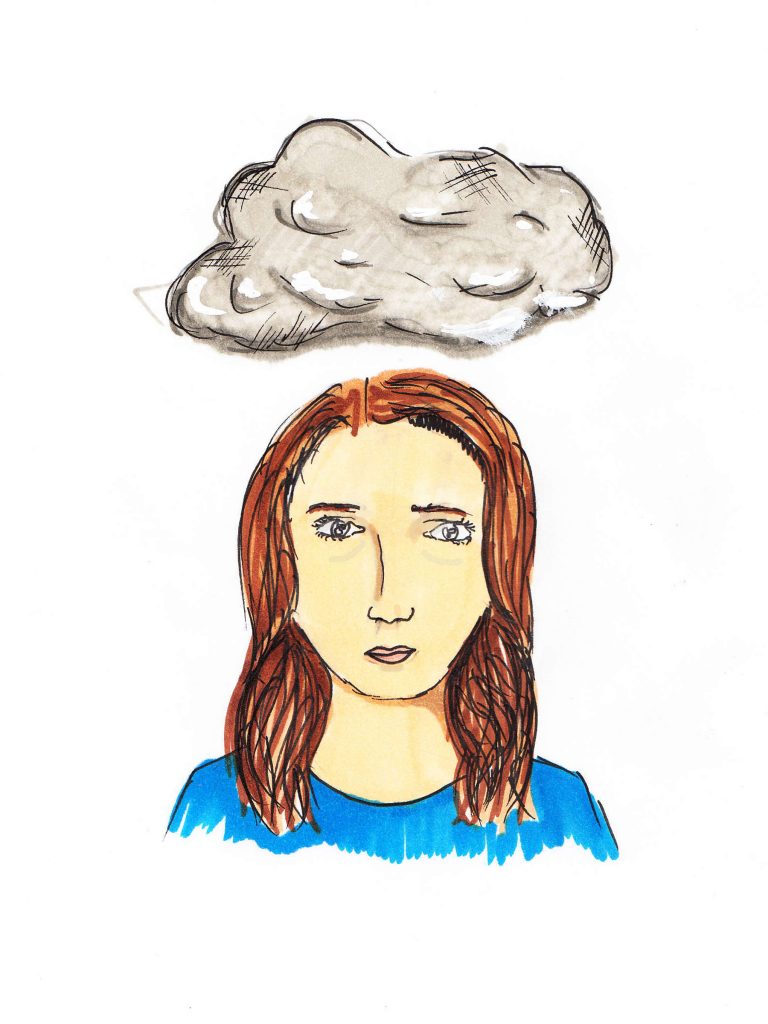
“You really want to open up, but open up to where you’re comfortable. Open up to people you trust, whether it’s a friend, a sister, a dad, a parent, a teacher, […] kind of pick and choose who you open up to, but definitely open up to people, it’s a really good thing,” Christa said.
“Don’t just hide it, because if you hid it it will just get worse. It’s like going to the doctor and him saying, ‘Oh you have cancer,’ and not doing anything about it. Make sure you do something about it.”
Ellen was fine with sharing with her parents and therapist.
“My parents chose not to have any medical treatments, I was never a patient at any mental hospitals, but I did regularly see a therapist,” Ellen said. “It’s just made me more aware, and now when I have bad days, I know how to cope, and I know how to get myself out of bad mental situations and keep myself from spiraling out.”
Shaun suggests not letting stereotypes and prejudice affect your decision to speak out, and understanding that you are not alone.
“But if you feel like you need help, go look for it. But don’t let people define you, don’t let people define who you are. Don’t let the commentary bring you down. It’s not worth it anymore. Find an outlet. Find one where you’re going to be happy as yourself,” Shaun said. “If someone discriminates against you, tell them to f— off because, you know what, it’s not worth the pain that everyone else has to endure, it’s not worth it.”
If you or someone you know ever get to a point where they feel like self-harm or suicide is the only option, get help.
“Don’t cut yourself. Don’t bleed for another. Why should you bleed when they’re the ones who are causing you harm with their words?” Shaun asked. “Instead of just enduring, tell them off, tell them to leave. Because you know what, no pain in the world, no one should suffer through pain at all.”
Although stigma can be discriminatory, it can be eliminated by yourself and those around you.
“Be you. Don’t try to live up to an expectation that people put out for you. Don’t try to live up to expectations that society has put out. Being you is perfect as it is. You can’t let anyone decide what’s perfect. Perfect is not definable. If you’re someone who has curves, or has an issue with their weight, you’re beautiful for who you are and you shouldn’t care. I too went through many things with my weight, where I felt like s— and I felt worthless. Don’t let it define you.”
*NOTE: A pseudonym was used in place of a real name to protect these students’ identities.
Background Photo Credit: Sarah Kagan/The Foothill Dragon Press


